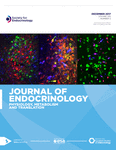Regulation of the androgen receptor by post-translational modifications
- Solid Tumour Target Discovery Group, The Medical School, Newcastle Cancer Centre at the Northern Institute for Cancer Research, Newcastle University, Paul O'Gorman Building, Framlington Place, Newcastle upon Tyne, Tyne and Wear NE2 4HH, UK
- (Correspondence should be addressed to C N Robson; Email: c.n.robson{at}ncl.ac.uk)
Abstract
The androgen receptor (AR) is a key molecule in prostate cancer and Kennedy's disease. Understanding the regulatory mechanisms of this steroid receptor is important in the development of potential therapies for these diseases. One layer of AR regulation is provided by post-translational modifications including phosphorylation, acetylation, sumoylation, ubiquitination and methylation. While these modifications have mostly been studied as individual events, it is becoming clear that these modifications can functionally interact with each other in a signalling pathway. In this review, the effects of all modifications are described with a focus on interplay between them and the functional consequences for the AR.
- Received in final form 31 July 2012
- Accepted 3 August 2012
- Made available online as an Accepted Preprint 7 August 2012
- © 2012 Society for Endocrinology











